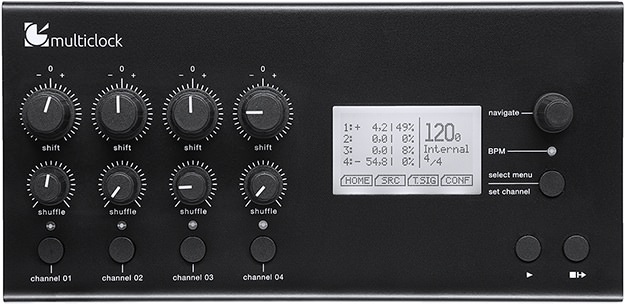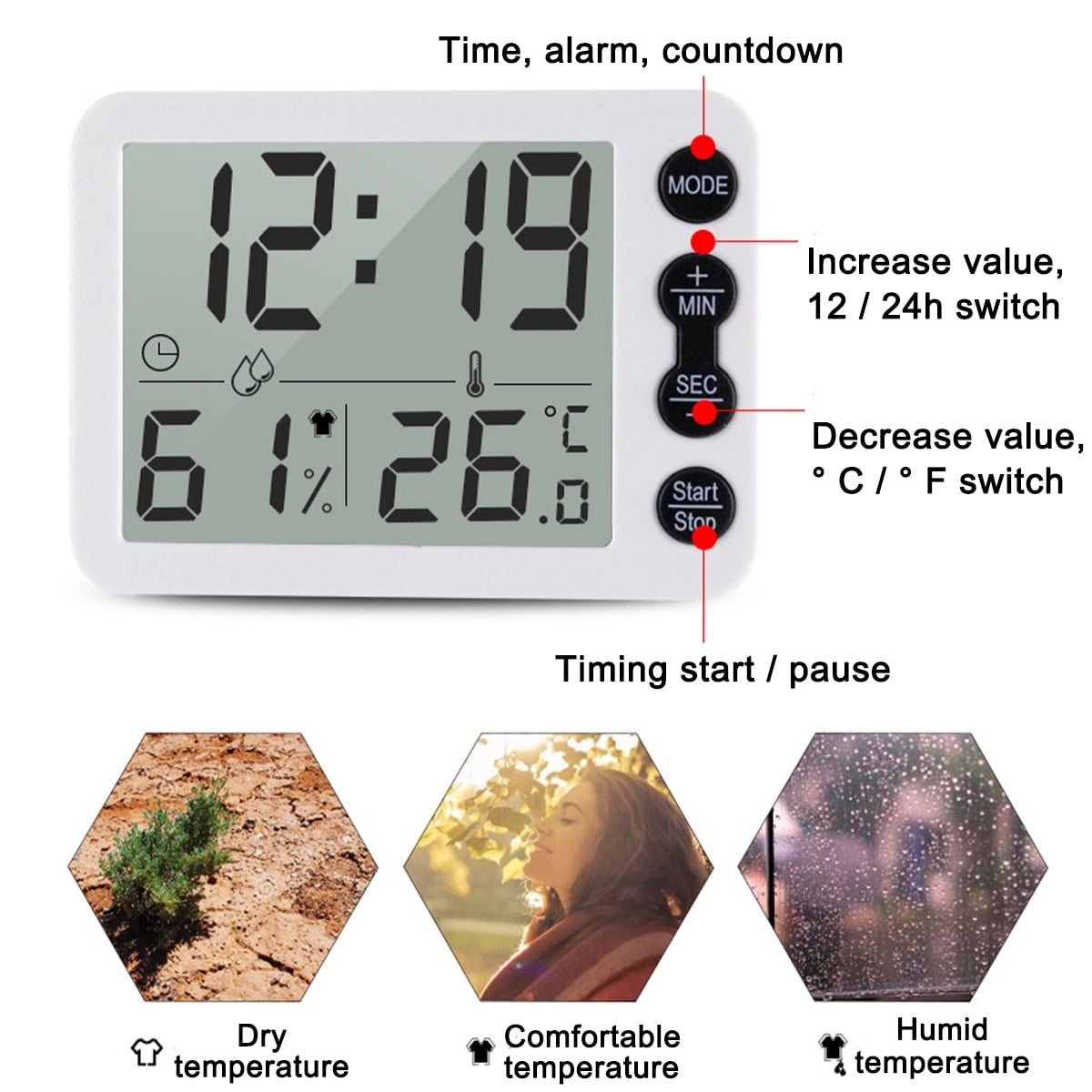

It allows you to route and merge other MIDI data from four USB MIDI ports and the onboard MIDI In with the accurate clock signals. To become the central connection hub of your setup, a powerful MIDI Router is available. If you then have found the sweet spot, you can add a bit of shuffle. To compensate for any time lag of your connected gear, you can shift each of the four output channels individually and in realtime back and forth relative to the reference clock. Analogue clock signals are configurable in polarity and start/reset behavior and individual clock dividers are available.

Each channel can be set to either emit MIDI, DIN sync or analogue clock. Synchronization of the multiclock to a DAW relies on a sample accurate audio clock, which allows for rock solid sync signals.
#ERM MULTICLOCK MPC AS CLOCK GENERATOR#
"The multiclock can be the main clock generator or synced to external MIDI, DIN sync and Analogue clocks. Each channel can have different divisions of a master clock, different amounts of shuffle applied or can be shifted forward or backward in time to tighten up sync between devices! Per E-RM: it seems to be a function of both devices given that only the acme seems to create this issue in the multiclock, and other devices seem to play fine with the acme.The ultimate stable master clock device! Phase accurate clocking when used with a DAW! (No more jittery MIDI clock from your computer!) Professionally sync all your electronic Instruments and Software!Į-RM Multi-clock outputs four different clock/sync channels, which can either be set to MIDI, Din Sync, or Analog clock with selectable division and reset signals. I don't have any of the weird swing settings or offset settings, or even divisions playing from acme. BUT if i leave things at that lower tempo (and we're talking about relatively high bpms, like 135), and i start up the acme, the multiclock flashes the 'clock running' band along the bottom, but then stops and doesn't pick it up. When i lower the tempo on the acme, the multiclock follows along. If i turn up the tempo on the acme to somewhere around 160 bpm, and then start it - the multiclock picks up the sync, shows the correct tempo, etc. So, i didn't suspect it.īut this is the weird problem. But it turns out that the problem was that i was syncing (or trying to) to the acme 4, which works with everything else. so, given that it syncs up immediately to the octatrack, there doesn't appear to be a problem with midi clock per se. I have no problem starting the multiclock with other clocks (analog clock, and then i tried the octatrack). Some more detailed troubleshooting today.found what the issue is, but i have no idea why this is happening. Sounds like everything will run without any problems! Can't wait to get it, DAW integration with my system has always been the intention, but it's taken me much longer than anticipated to get it done. Thanks a lot for the detailed explanation. I put the output on the scope and can confirm Multiclock's reset gate goes high when I start Reaper and stays high until I stop Reaper then if goes low, and Pams starts and stops on the gate. I set the Multiclock Channel to Gate mode with Positive Polarity and on Pams, I set Run to "Gate Sets Clock State". Really a ton of options on the Multiclock side! One can also set the Start Polarity to positive or negative. Channel 1 on Multiclock is set to "Analog" Channel Mode, which has a submenu called "Start Mode" which one can set to either a Gate, a Trigger, or a Trigger that skips one click. I was just a bit concerned that somebody said it didn't stop when the run receives zero gate but hopefully it's been resolved!Ī little more detail on how this is configured in my setup: I'm using output 1 TRS from Multiclock to a Y cable to Pams Clock and Reset inputs.


 0 kommentar(er)
0 kommentar(er)
